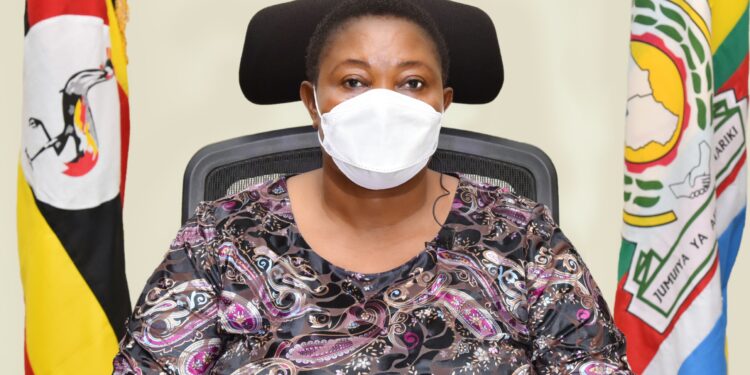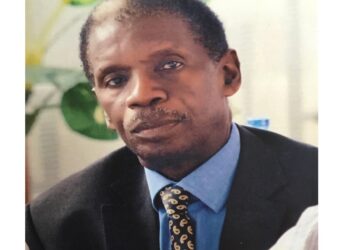Shall we ever see the end of HIV/AIDS in Uganda as projected for 2030? That is everyone’s wish but how prepared are we to achieve that objective?
Each year during this month, Uganda AIDS Commission (UAC) under the office of the President mobilizes partners at national and subnational level to observe and participate in HIV and AIDS advocacy events, key among them is the World AIDS Day (WAD). On December 1, Uganda joined the rest of the WAD. The function was held in Rukungiri District and we were privileged to have H.E the President as the Chief Guest. The presence of the President at the function underlined the importance of the fight against the incurable killer disease which some people have started taking as a simple disease. I thank H.E the President for his consistence in his protracted struggle to save Ugandans from this disease that took the lives of many of his comrades when they had just emerged from liberating Uganda.
Uganda has made tremendous progress in combating the HIV and AIDS epidemic over the past 10 years. By end of 2021, Uganda had an estimated 1.4 million people living with HIV, AIDS-related deaths had declined by 67% from 51,000 in 2010 to 17,000 and new HIV infections had declined by 39% from 88,000 in 2010 to 54,000 (Uganda 2022 HIV Epidemiological Estimates).
In spite of the progress made there is still unfinished business. About 1,000 people get infected with HIV every week and about 326 people die weekly due to AIDS related deaths. Infections among young people (15 -24 years) accounted for 37% of all the new HIV infections in the year 2021, with new infections occurring three times more among the young girls compared to the boys in the same period. (MOH Annual estimates 2021).
The drivers of new HIV infections include: multiple sexual partnerships, sexual and Gender Based Violence, negative socio-cultural norms and values like early marriages and widow inheritance; transactional sex, income inequality and poverty, high levels of school dropout, stigma and discrimination, inequity in access to prevention, care and treatment services. Concerted efforts by all stakeholders are required to address these challenges.
Commemoration of WAD and accompanying events provide a powerful advocacy platform that is well aligned to the Presidential Fast Track Initiative (PFTI) for Ending AIDS as a public health threat in Uganda by 2030 and mainstreaming HIV for epidemic control. The PFTI initiative aims to ensure that nobody is left behind and promotes increased focus on proven effective interventions of the HIV response and addressing prevailing gaps in coverage of key services in the country.
Currently, Uganda like other countries globally is undergoing the post COVID-19 pandemic recovery jitters. The impact of COVID-19 was immense across the country such as disruption of social services in education, health, livelihoods, a raise in teenage pregnancy, increase in Gender Based Violence (GBV) across the country. This, therefore, escalated the HIV infections among the young people across the country.
The working theme for the Global World AIDS Day 2022 was ‘Equalise’; this is a call to action. It called on each of us to do all we can to address the inequalities which are holding back progress in ending AIDS. The working theme for Uganda this year was to: ‘ENDING INEQUALITIES AMONG ADOLESCENT GIRLS, YOUNG WOMEN AND BOYS’. With the 2030 target, it is a critical for everyone to reflect on their individual and collective responsibility towards ending AIDS in Uganda.
As a country, we always commemorate this day to take stock of achievements in the fight against HIV and AIDS and rededicate efforts to the fight against the epidemic.
H.E the President has since the early 1980s spearheaded the fight against HIV and AIDS in the country winning various accolades at continental and global levels.
In 2017, the President launched the Presidential Fast Track Initiative to end AIDS as a Public Health threat in Uganda by 2030. And since then, the country has registered many achievements.
It is, therefore, critical to have increased and consistent sensitisation of the public about the prevalent risk of new HIV infections and what individuals need to do in order to mitigate the risk. Commemoration of WAD provides a strategic opportunity for engaging the public. This is even more timely because of the highly festive season where some people tend to indulge in unhinged behavior thus acquiring HIV. Office of the President will provide oversight to Uganda AIDS Commission to ensure that community sensitisation is intensified as part of the commemoration activities and at all times until we hit the target.
Leaders at all levels should do their part in increasing HIV awareness and advocacy. Parliament should
support the funding for HIV interventions to ensure we achieve the Presidential Fast Track Initiatives for Ending AIDS by 2030 in Uganda, and I believe that we shall make it because we have come a long way. Let each one of us avoid being a statistic even as numbers go down.
Also, let me use this chance to ask the public to heed to the President’s fresh directives intended to prevent a resurgence of Covid-19; please, get vaccinated and have your certificate with you (accessible at the visit the Ministry of Health portal located at: epivac.health.go.ug).
RDCs, RCCs and your Deputies, please, disseminate these directives in your areas of jurisdiction and see to it that that they are implemented. The same vigilance should not leave Ebola behind!
The author is the Minister for the Presidency
Do you have a story in your community or an opinion to share with us: Email us at editorial@watchdoguganda.com













